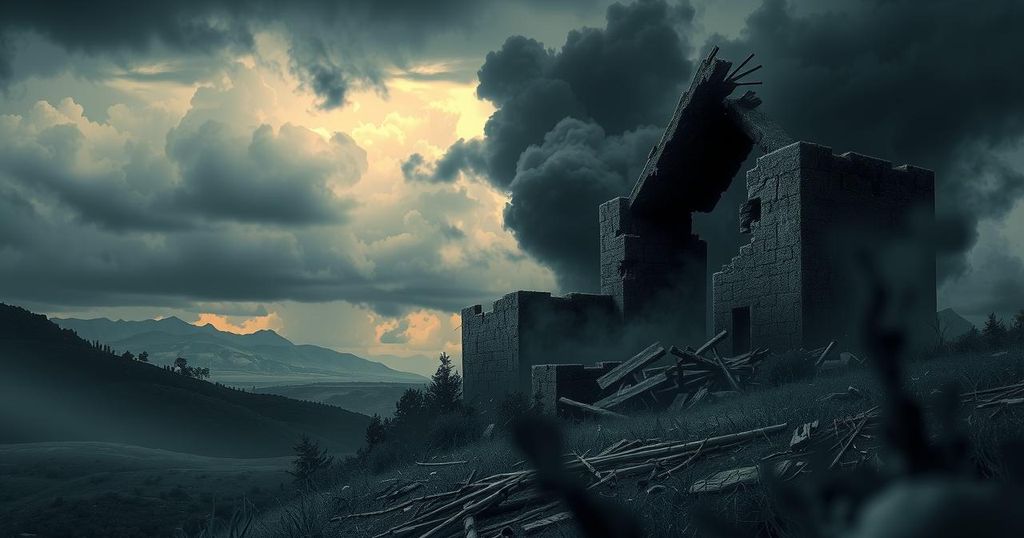The M23 rebel group has seized Goma in eastern DRC and is advancing towards Bukavu, escalating a conflict that has displaced over a million people and worsened humanitarian conditions. Composed of mainly ethnic Tutsis, M23 claims to protect its community from armed Hutu militias and accuses the Congolese government of failing to honor previous peace agreements. The conflict has regional roots, complex geopolitical implications, and significantly affects global supply chains due to the DRC’s mineral wealth.
The M23 rebel group has captured Goma, a critical city in the eastern Democratic Republic of Congo (DRC), and is advancing towards Bukavu. This development represents a significant escalation in a protracted conflict that has already displaced over one million individuals and caused widespread violence. The humanitarian crisis has intensified, with hospitals overwhelmed and many fleeing from their homes to escape the growing violence.
M23 is largely composed of ethnic Tutsis, who assert they are defending their community against armed Hutu militias, particularly the Democratic Forces for the Liberation of Rwanda (FDLR). The organization claims that the Congolese government failed to fulfill promises made in the March 23, 2009 peace agreement, specifically regarding political representation and military integration. In response to perceived neglect, they resumed armed conflict in 2022.
Following a fierce encounter, M23 rebels gained control of Goma by Tuesday evening, after overpowering government soldiers and allied militias. By Wednesday morning, they had full control of the city, where reports indicate corpses remain on the streets. Corneille Nangaa, leader of the Congo River Alliance, announced that M23 aims to govern the city as they plan their advance towards Bukavu.
Goma is strategically positioned on the Rwandan border and near valuable mining districts, providing access to important resources like gold and coltan, essential for modern electronics. With Goma under their control, M23 can exploit significant trade routes and economic resources, generating approximately $800,000 monthly from coltan production taxes.
The conflict in eastern DRC has persisted for over 30 years, originating from the aftershocks of the Rwandan genocide. The region is fraught with over 100 armed factions vying for control and power, complicating the geopolitical landscape as Rwanda and Uganda have conducted military operations in past decades, aiming to eliminate Hutu militias.
Accusations regarding Rwanda’s support for M23 persist, with UN officials and Western governments alleging that Rwanda provides troops and weaponry to the rebels. Rwanda denies these claims, presenting its actions as defensive and failing to acknowledge the involvement of the FDLR in attacks against Tutsis on both sides of the border.
The conflict has ramifications beyond the region, affecting global supply chains for essential minerals like coltan, gold, and tin, which are crucial for technology. Interruptions in production may lead to increased prices for electronics and other products worldwide.
United Nations peacekeepers have been supporting the Congolese army under the MONUSCO mission, although their planned withdrawal has been halted amid the deteriorating security. Following Goma’s seizure, UN forces evacuated their personnel, and many government officials sought refuge with them. The presence of private military contractors hired by the Congolese military has not significantly changed the outcome, leading to losses.
International calls for Rwanda to cease its backing of M23 have increased, as the control of Goma presents new challenges. The outcome of M23’s advance toward Bukavu will be crucial in determining the future stability of the DRC and the overall humanitarian situation in the region.
The situation in the Democratic Republic of Congo is deeply rooted in historical ethnic tensions and conflicts that date back over three decades. The M23 group emerged from grievances related to the March 23, 2009 peace agreement which was not fully honored by the Congolese government, specifically regarding the integration of Tutsis in the military and political processes. The capture of strategic areas like Goma not only impacts local communities but also poses significant international implications due to the region’s wealth in natural resources. The involvement of neighboring countries like Rwanda complicates the conflict further, as many regional tensions are interspersed with issues stemming from the 1994 Rwandan genocide.
The escalating conflict in eastern DRC, particularly with M23’s recent capture of Goma, underscores the urgent need for comprehensive international attention and intervention. The situation remains critical as humanitarian conditions worsen, and regional dynamics become increasingly volatile with allegations of foreign military support. The outcomes of this conflict will profoundly affect both the humanitarian landscape and the geopolitical stability of Central Africa, necessitating proactive measures from global leaders. The upcoming actions of M23 may determine the future trajectory of peace and stability in the region.
Original Source: www.business-standard.com






